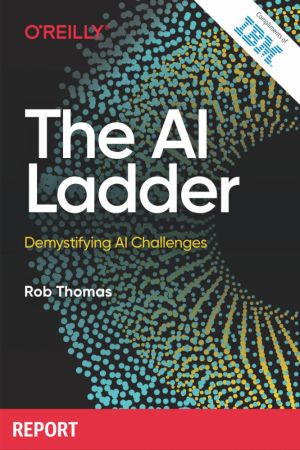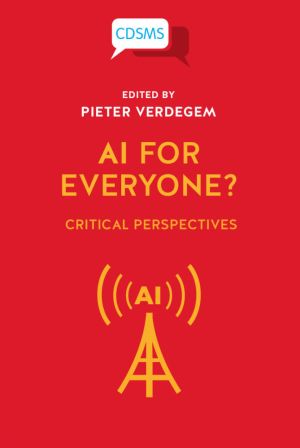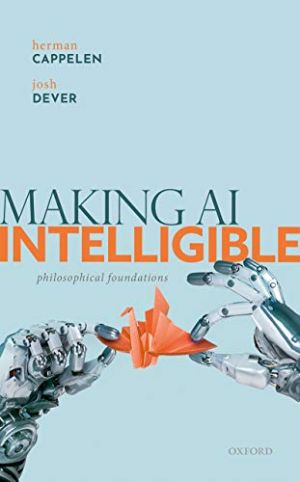Making AI Intelligible
Philosophical Foundations
by Herman Cappelen, Josh Dever
DescriptionTable of ContentsDetailsHashtagsReport an issue
The questions addressed in the book are not only theoretically interesting, but the answers have pressing practical implications. Many important decisions about human life are now influenced by AI. In giving that power to AI, we presuppose that AIs can track features of the world that we care about (for example, creditworthiness, recidivism, cancer, and combatants). If AIs can share our concepts, that will go some way towards justifying this reliance on AI. This ground-breaking study offers insight into how to take some first steps towards achieving Interpretable AI. 






Book Description
Can humans and artificial intelligences share concepts and communicate? Making AI Intelligible shows that philosophical work on the metaphysics of meaning can help answer these questions. Herman Cappelen and Josh Dever use the externalist tradition in philosophy to create models of how AIs and humans can understand each other. In doing so, they illustrate ways in which that philosophical tradition can be improved.The questions addressed in the book are not only theoretically interesting, but the answers have pressing practical implications. Many important decisions about human life are now influenced by AI. In giving that power to AI, we presuppose that AIs can track features of the world that we care about (for example, creditworthiness, recidivism, cancer, and combatants). If AIs can share our concepts, that will go some way towards justifying this reliance on AI. This ground-breaking study offers insight into how to take some first steps towards achieving Interpretable AI.
This open book is licensed under a Creative Commons License (CC BY). You can download Making AI Intelligible ebook for free in PDF format (1.1 MB).
Table of Contents
Chapter 1
Introduction
Chapter 2
Alfred (The Dismissive Sceptic): Philosophers, Go Away!
Chapter 3
Terminology: Aboutness, Representation, and Metasemantics
Chapter 4
Our Theory: De-Anthropocentrized Externalism
Chapter 5
Application: The Predicate 'High Risk'
Chapter 6
Application: Names and the Mental Files Framework
Chapter 7
Application: Predication and Commitment
Chapter 8
Four Concluding Thoughts
Book Details
Title
Making AI Intelligible
Subject
Computer Science
Publisher
Oxford University Press
Published
2021
Pages
184
Edition
1
Language
English
ISBN13 Digital
9780192894724
ISBN10 Digital
0192894722
PDF Size
1.1 MB
License

Related Books

This volume describes phase 3 of the AiREAS multidisciplinary cocreation effort to produce a Healthy City. Phase 1 referred to making visible the invisible from an air quality and human exposure perspective. Phase 2 studies air quality related to health and Phase 3 looks at air quality, health and lifestyle from the perspective of persuasion to inn...

The processes for gathering, organizing, analyzing, and ultimately infusing AI throughout your organization can be thought of as a ladder. A ladder helps you climb far higher than you could go on your own by turning an impossible leap into a series of steps. Knowing what the ladder looks like helps you evaluate your organization's readiness fo...

We are entering a new era of technological determinism and solutionism in which governments and business actors are seeking data-driven change, assuming that Artificial Intelligence is now inevitable and ubiquitous. But we have not even started asking the right questions, let alone developed an understanding of the consequences. Urgently needed is ...

This book reports on the results of an extended survey conducted across Europe within the framework of the APPRAISAL FP7 project to determine the extent to which an integrated assessment approach to air quality is being adopted, on the one hand, by regional and local authorities to develop air quality plans and, on the other, by researchers. Follow...

This open book examines recent advances in how artificial intelligence (AI) and robotics have elicited widespread debate over their benefits and drawbacks for humanity. The emergent technologies have for instance implications within medicine and health care, employment, transport, manufacturing, agriculture, and armed conflict. While there has been...

This open book introduces the reader to the foundations of AI and ethics. It discusses issues of trust, responsibility, liability, privacy and risk. It focuses on the interaction between people and the AI systems and Robotics they use. Designed to be accessible for a broad audience, reading this book does not require prerequisite technical, legal o...

